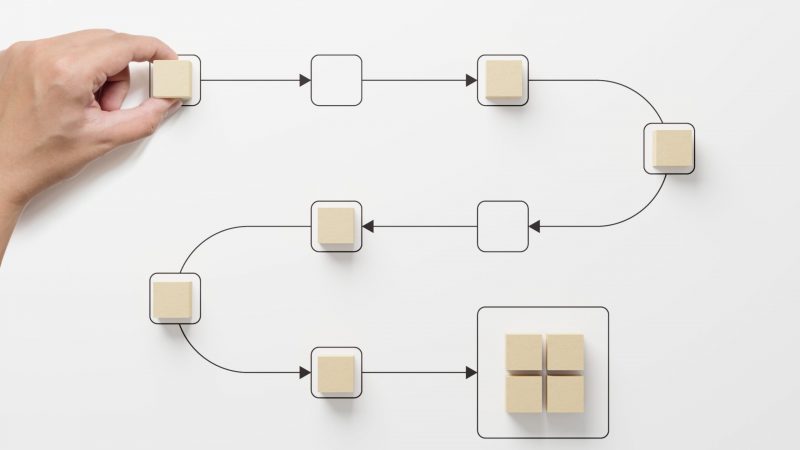Clients who understand why internal audits take place and how they fit into the big picture are more likely to set realistic expectations for the audit and share valuable insights on problem areas. When clients feel heard and on the same page as the audit team, they collaborate more effectively. This, in turn, leads to better audit results and enhances the organization’s ability to handle risks. While the fieldwork phase of an audit is crucial for fostering trust, it’s vital to nurture a positive client relationship year-round.
Establishing a solid relationship with your client is imperative for any partnership. How can you cultivate rapport and foster a strong client connection?
How to Build Connections with Your Audit Clients?
When you’re auditing, whether you’re doing it from inside or outside the company, you aim to truly grasp what’s happening in the area you’re looking into. It’s not just about the documents; the folks in the company matter too. Their insights and experiences play a key role in the audit. So, how can you establish a solid connection with them to ensure the audit goes smoothly?
Connect with People
Remember, your clients are more than just business contacts. They’ve got lives and families, so make an effort to get to know them on a personal level. According to Lars Sigmond, who used to audit at KPMG, treating clients like colleagues is key. If you’re part of the company you’re auditing, forming relationships comes more naturally. But even if you’re an external auditor and don’t interact with clients frequently, staying connected online and scheduling some time for socializing during audits can go a long way.
Sigmond suggests that you can maintain your independence while still being friendly with clients. He recommends pausing the audit for a meal to strengthen your relationship. Audits can be challenging for everyone, but your approach can definitely lighten the load.
Accessibility to Clients
In this digital age, folks anticipate swift replies on their smartphones and via email. It’s key for nurturing strong client bonds. Show your clients they matter by answering promptly, while also being upfront about what’s doable. Set a realistic timeframe for getting back to emails and calls.
Be Trustworthy
It’s key to build trust with your clients not just in your professional skills, but also on a personal level. Show them you’ve got what it takes to steer them through the process smoothly. Don’t hold back on sharing your expert advice, even if it differs from their viewpoint. Remember, you’re the auditing pro. Yet, bring empathy to your audits. Clients might be nervous, thinking you’re out to catch them slipping up. Try to be empathetic and steer clear of dwelling too much on their missteps. Instead, position yourself as a guide, showing them ways to do better down the line.
Especially in external audit gigs, giving compliments can go a long way. Recognize the effort your client puts in.
When it comes to criticism, it’s best to keep it constructive. Sigmund suggests that instead of just pointing out flaws, look for areas to improve. Tailor your approach to highlight feedback that’s geared towards helping them grow, not just fault-finding. This method can maintain positive client connections and make your feedback more impactful.
Engage as a Listener
Good communication is all about removing barriers that hinder active listening. Before a call or meeting, ensure you’ve got ample time and won’t need to bail out early. Address any distractions beforehand to fully concentrate on your client. Demonstrate you respect their time by giving them your complete focus. Take your time with questions; stay engaged, and you might uncover more insights from your client than anticipated.
Get to Know the Business
You’ll earn respect from your client if you understand their business well. Keep up with the latest trends and important numbers in the area you’re examining, and know the rules that apply. This shows you’re serious about understanding what you’re auditing.
Think of the audit as teamwork with your client. Spend time learning about them – what they care about, how they act, and what they want to achieve. By focusing on the personal side, you’ll improve the business side and make everyone’s experience better.
Steps to Foster Alliance with Audit Clients
Turning audit clients into allies should be ongoing throughout the year. Here are some tips to keep in mind at each stage of an audit project.
Fieldwork
- Plan clearly when you’ll talk to clients, including the first meeting, follow-ups, and the final meeting.
- Have a weekly meeting with the main person you’re working with to discuss how things are going.
Reporting
- Make sure everyone involved knows about the initial findings before the final meeting.
- If different teams are involved, tell them about the findings before the final meeting.
- Be ready with a draft plan at the final meeting.
Planning
- Talk to the people you’re working with well before the audit unless it’s a surprise.
- Stick to the dates you set for meetings and avoid last-minute changes.
- Consider the client’s time zone for planning calls.
- Use technology to help with communication and sharing documents.
Annual Risk Assessment
- Before asking about their risk areas, meet your main contacts in person to build a good relationship.
Year-Round Cycle
- Take the time to connect with your usual audit clients when you’re not working on an audit or asking for their assistance. Have coffee together, either in person or virtually, and chat about their lives. Showing real interest in them helps build a positive relationship, making them allies instead of opponents.



